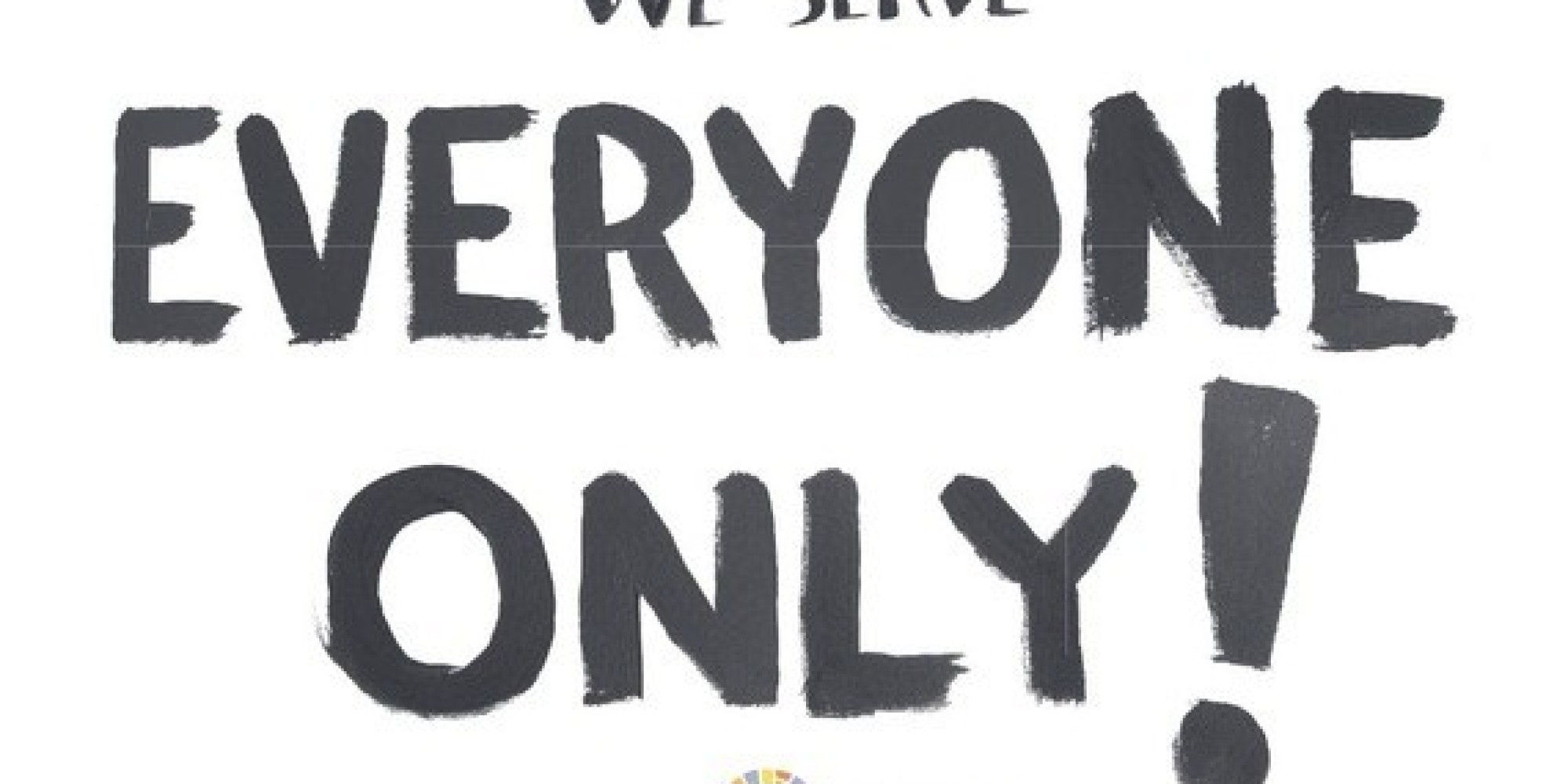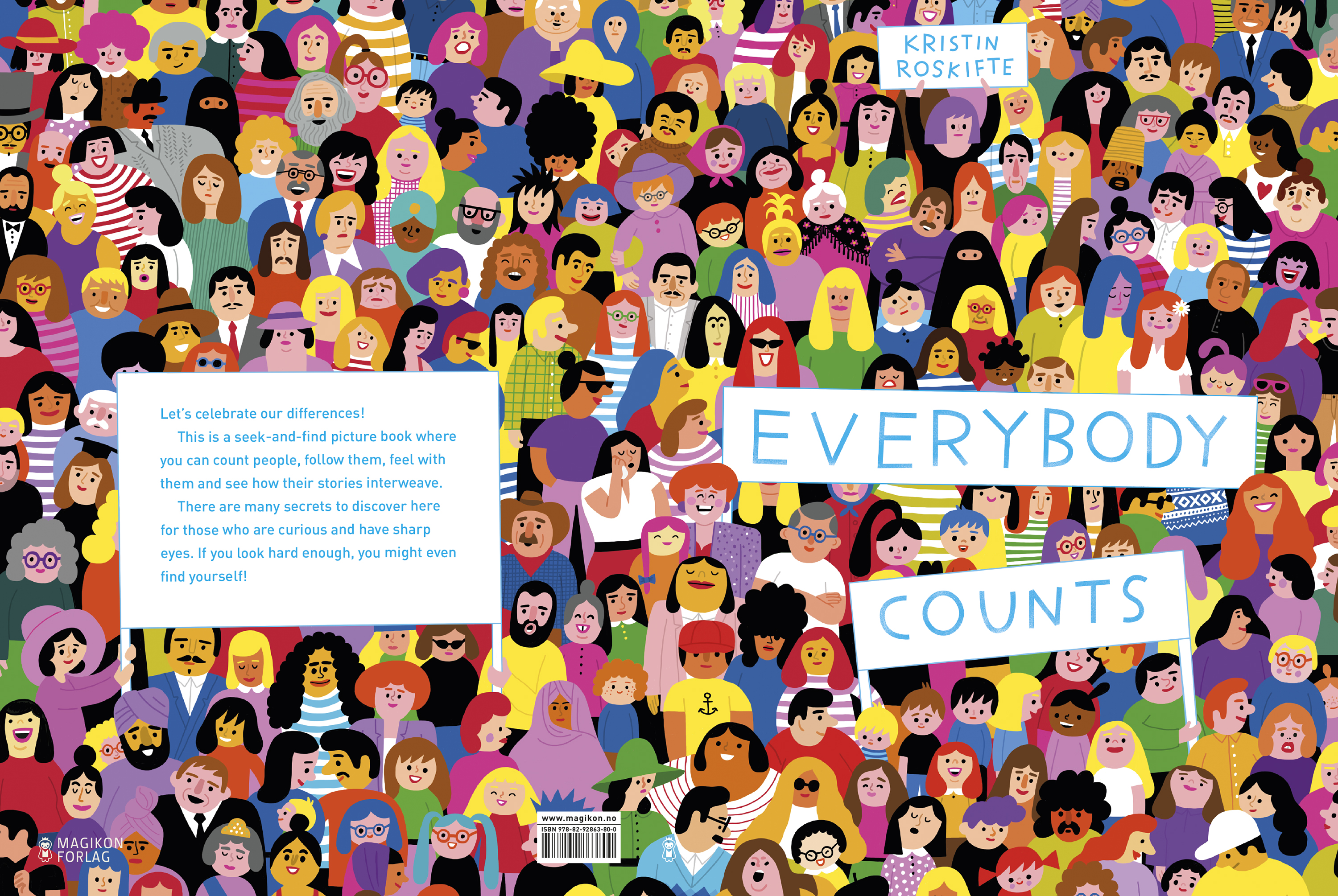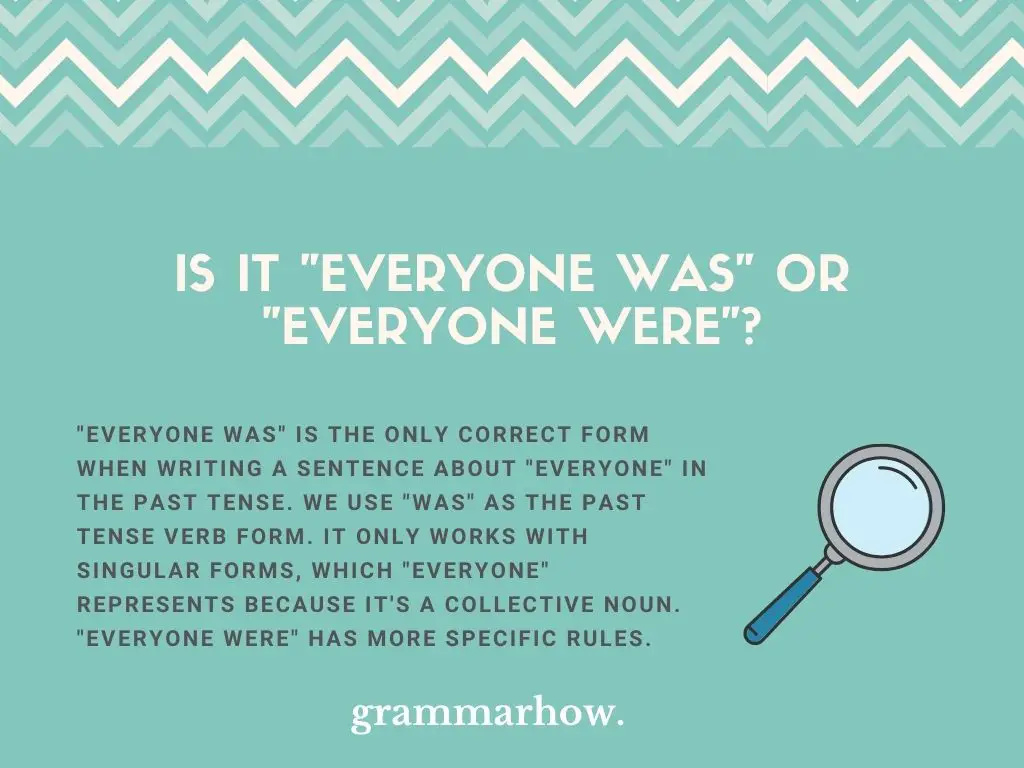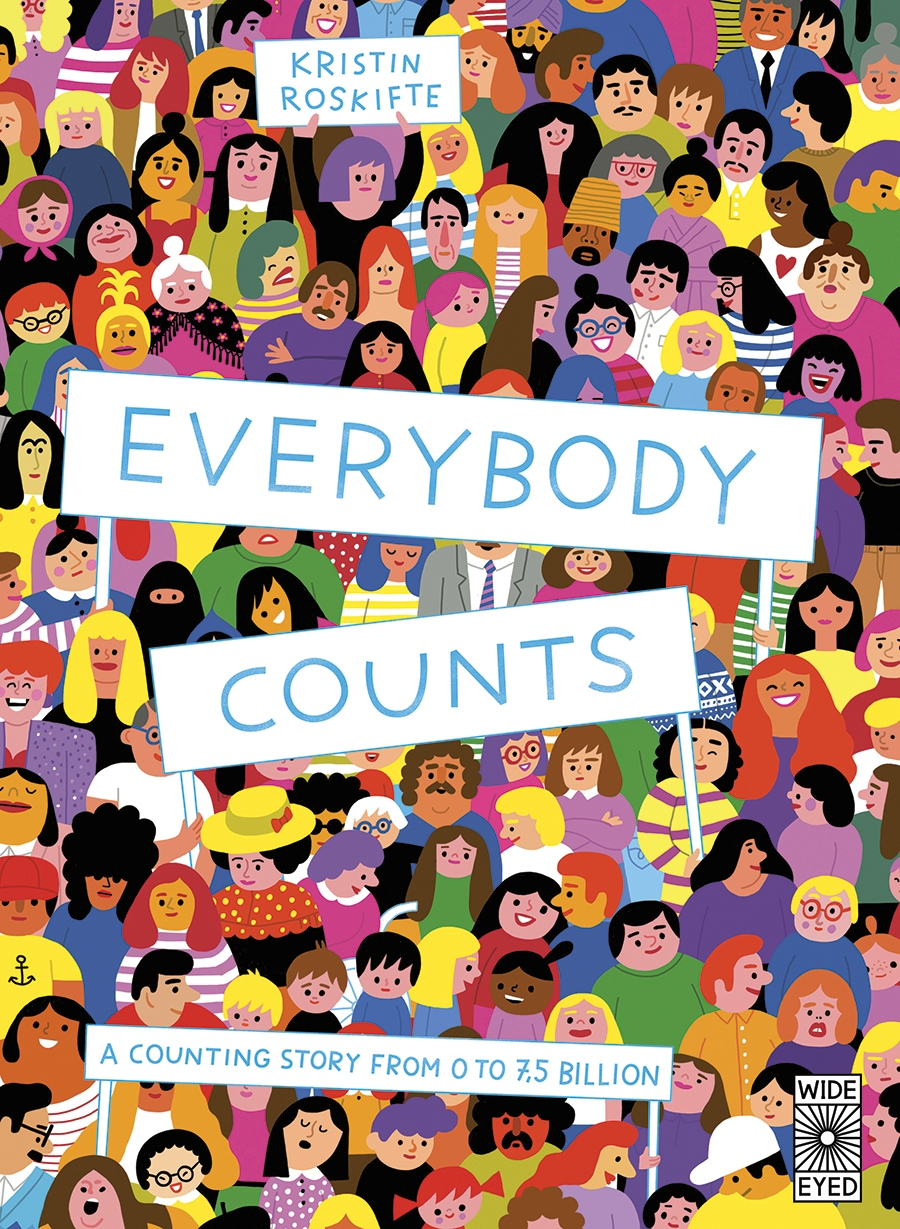
Everyone Was Or Were / 'Everybody Loves Raymond' Child Actor Sullivan Sweeten 5 Everyone
b) Were - "Were" is used because the subject "The children" is plural. b) Were - "Were" is used because "a lot of people" is considered a plural noun phrase. a) Was - "Was" is used because the subject "The weather" is singular. a) Was - "Was" is used because "it" is a singular pronoun referring to the.

Quote If It Was Easy Everyone Would Do It Daily Advice
Everyone, everybody, everything, everywhere - English Grammar Today - a reference to written and spoken English grammar and usage - Cambridge Dictionary

Everyone Was Or Were 'Was or Were' Grammar Guide & Practice worksheet Free We use the
We can use "all" to mean "everything," and if we do not elaborate with specific objects, "all was" is correct. For example, "all was happy" means that "everything (or everyone) was happy.". All was quiet in the neighborhood. I couldn't believe it! All was not as it seemed. I'm sure there was more to it than I first realized.

Everybody Was or Were Asked to Be Quiet
What is the difference between was vs were?. The words "was" and "were" are past tense forms of the verb "to be," a word English speakers use more often than they realize.Whenever we use the terms are, is, am, was, were, be being, or been-- we are using the verb 'be' (to be).. The verb 'to be' contains several forms because it's an auxiliary verb, which means it.

Albert Einstein Wallpaper Dreams Goals Without Everyone Easy Would Doing Dass Ram Quote Wouldn
Was is used in the first and third person singular past. It is used for statements of fact. Were is used in the second person singular and plural and first and third person plural. It is used in the subjunctive mood to indicate unreal or hypothetical statements. The words if and wish usually indicate the subjunctive mood.

Pin on Aphasia Tools
In each of the pairs of sentences above, the first one refers to something that actually happened in the past, and the word "was" is the correct choice. The second sentence is a wish or a speculation - it refers to an event that did not actually happen, and "were" is the correct choice. They were the winning team, so they celebrated.

"Everyone Was" or "Everyone Were" Correct Version
According to Diana Hacker's "A Canadian Writer's Reference" (p.123 section G1-d) you treat most indefinite pronouns as singular so the answer is "was.""Indefinite pronouns refer to nonspecific persons or things. Even though the following indefinite pronouns may seem to have plural meanings, treat them as singular in formal English: anybody, anyone, each, either, everybody, everyone, everything.

Everybody Was or Were Asked to Be Quiet
When using be in an if clause for an unreal conditional sentence, always conjugate it as were, no matter what the subject is. Even if the subject is first-person singular (I) or third-person singular (he, she, or it), still use were with an if clause in unreal conditional sentences. If I were a rich man, I'd buy a big, tall house with rooms.

Everybody Was or Were Asked to Be Quiet
Use were if the subject is plural. Remember this rule when trying to decide whether to use was, were, or some other form of the verb to be. For example: There was a dog on the road. (The subject is "dog," a singular noun.) There were three people trying to lure the dog away from the road. (The subject is "people," a plural noun.)

Everyone Was Or Were 'Was or Were' Grammar Guide & Practice worksheet Free We use the
The general rule is simple: use "everyone was" for most past tense statements and save "everyone were" for the conditional or subjunctive mood when expressing wishes or hypotheticals. Keep this quick reference guide handy as a reminder of the standard and exception to the rule.

Everybody Was or Were Asked to Be Quiet
Jan 15, 2014. #1. I know that British English and American English differ in whether they consider subjects representing groups of people to be singular or plural. For example, in AmE it is proper to say -- The government was beaten by the opposition. Whereas in BrE this would be -- The government were beaten by the opposition.

Everyone Was Or Were / 'Everybody Loves Raymond' Child Actor Sullivan Sweeten 5 Everyone
Every one (two words) should be used when referring to each individual member of a group. Every one is the version you want when it's followed by an "of" phrase. Consider the following examples: My mother would like to thank every one of you who offered assistance during her illness. My mother would like to thank everyone of you who.

Everyone Was Or Were / 'Everybody Loves Raymond' Child Actor Sullivan Sweeten 5 Everyone
Updated on May 8, 2023 Grammar. Chances are, you're familiar with one difference between was and were: the fact that was is the first- and third-person singular past tense form of the verb to be, while were is the second-person singular past and the plural past form of to be. But what about when you're talking about hypotheticals—for.

Ejercicios De Gramatica Verbos Online O Para Imprimir. 778
We use "was" as the past tense verb form. It only works with singular forms, which "everyone" represents because it's a collective noun. "Everyone were" has more specific rules. We can only use "everyone were" when we are talking about our wishes or expressing potential things in the future. It's common for words like "if.

EVERYONE vs EVERYBODY How to Use Everybody vs Everyone in Sentences? Confused Words
Everyone were or everyone was? Another mistake, my students usually make - everyone were here. The root of these words is a singular noun - one, body. Therefore we have - everyone was here and no one was there.
Which is correct, everyone ‘was’ or ‘were’? HiNative
Everyone were waiting for a prompt response from Lewis Hamilton forced instead to raise the white flag at the beginning of Q3 for a new power-unit problem. If everyone were more selfish, the world would be a better place. If everyone were very nice, we couldn't develop patience. We felt at home as everyone were so friendly and helpful.